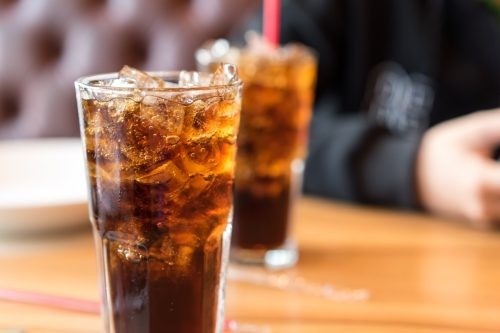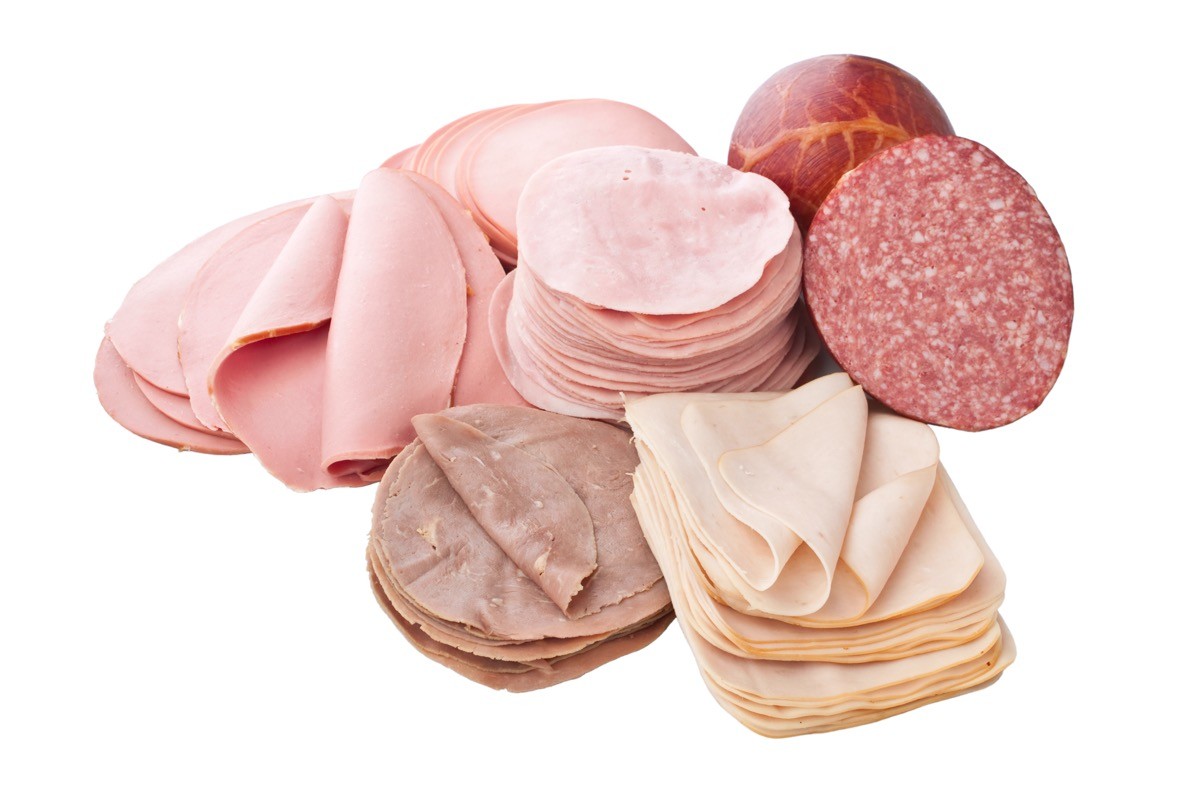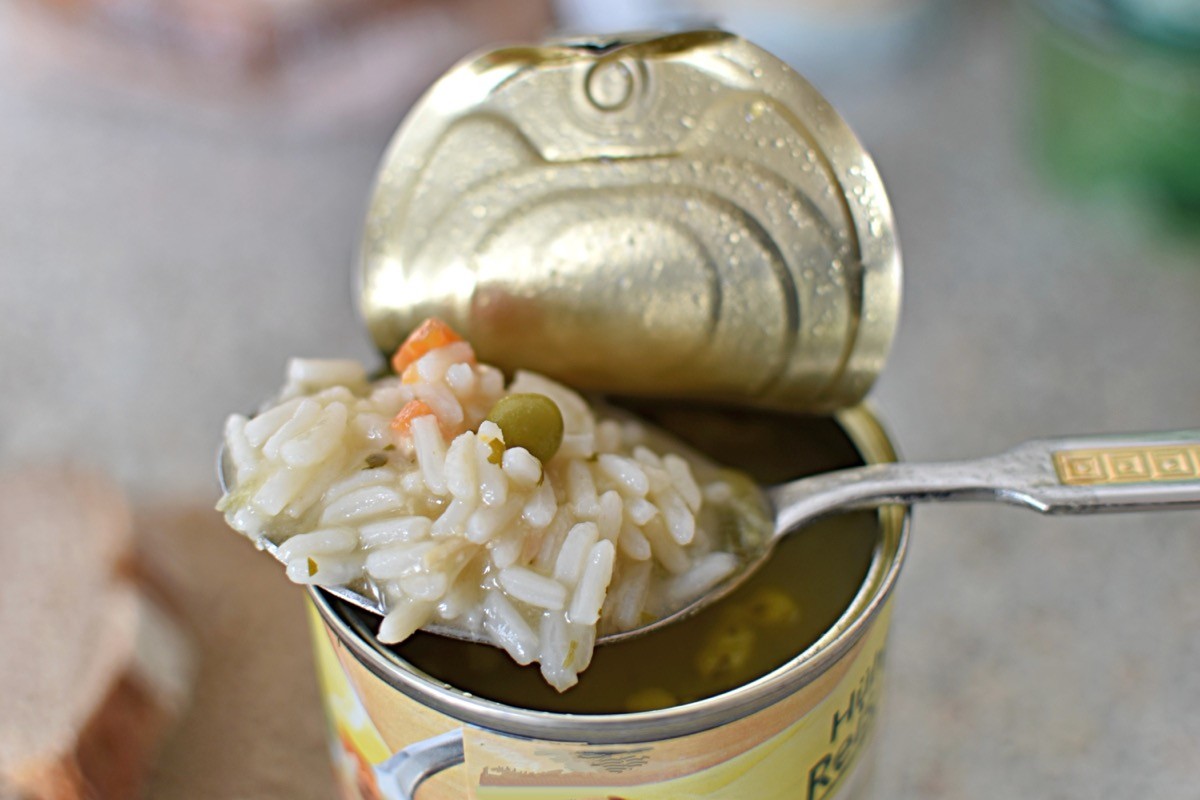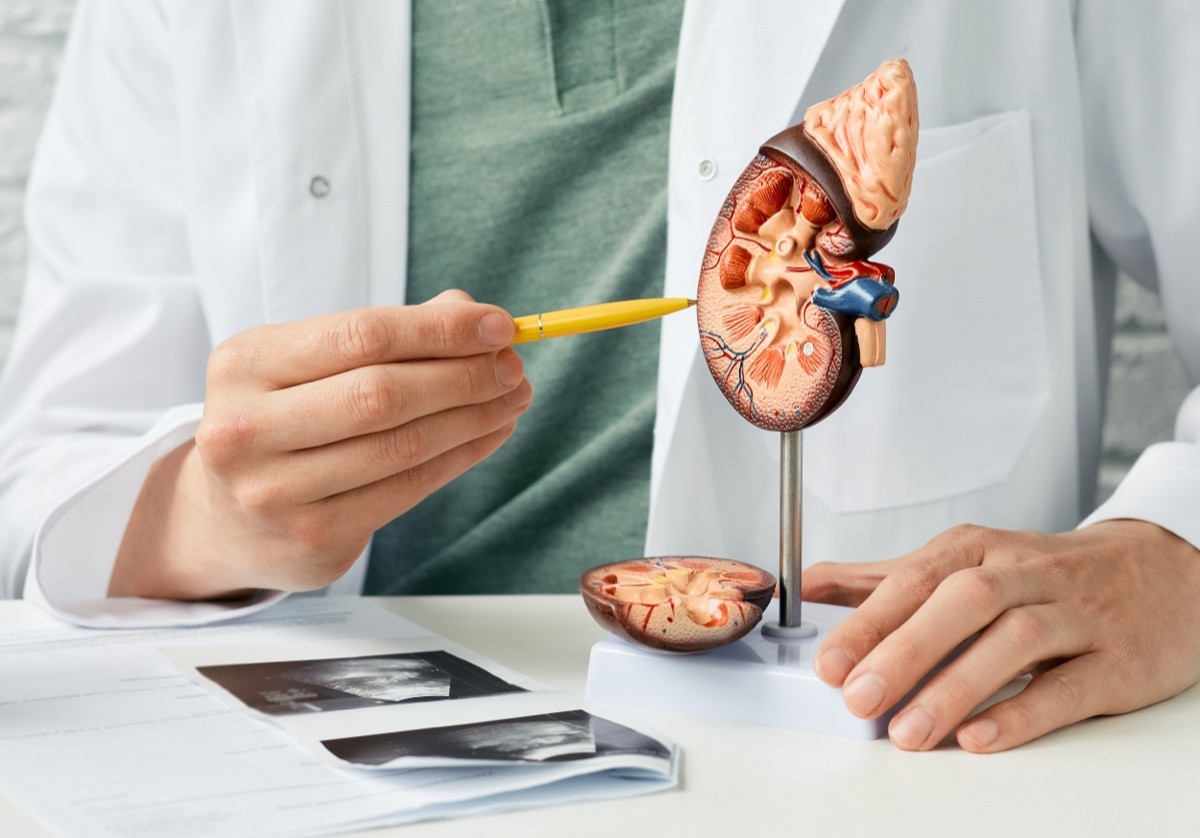3 Foods That “Destroy” Your Kidneys, Naturopathic Doctor Says

This time of year, many of us focus on eating to lose weight, so it can be easy to overlook certain diet patterns that could harm your body—especially organs like your kidneys. Of course, some of this comes down to the right lifestyle choices, including getting enough sleep, staying hydrated, and taking it easy on over-the-counter painkillers, according to the National Kidney Foundation. But if you’re looking to keep these organs healthy, experts say there are certain foods that “destroy” your kidneys that you’ll want to avoid.
RELATED: 5 Supplements That Can Damage Your Kidneys, Doctors Say.
1
Soda

In a recent video posted to TikTok, naturopathic doctor Janine Browning outlined three specific items you might want to reduce or cut out of your diet for the sake of your kidneys.
She first points out sugary sodas. “They are high in sugar and phosphorus, which is a mineral that can be really hard on your kidneys—especially if you have kidney disease,” she cautions in her post.
According to the National Kidney Association, it goes beyond just the ingredients. High-sugar beverages can contribute to obesity, which in turn contributes to underlying health issues like hypertension and diabetes, the two leading causes of kidney disease.
2
Lunch meats

It’s not just sweet items you need to be wary of. The next item on Browning’s list is processed cold cuts like ham, bologna, and other sandwich staples.
“Those lunch meats [and] deli meats are very high in salt and nitrates—and those nitrates are hard on your kidney health,” she says.
Besides their high salt content, highly processed foods like cold cuts also contain additives like saturated fats, refined carbohydrates, and added sugar while still lacking in important nutrients like fiber and protein, per the National Kidney Association.
If you’re having a hard time cutting them out of your diet, consider trying to stick to items like turkey and chicken and always opting for low-nitrate and low-sodium versions.
RELATED: 7 Subtle Signs You’re Consuming Too Much Sodium, According to Doctors.
3
Canned foods

Your pantry can also contain kidney-damaging ingredients. Browning says canned foods suffer from a similar high sodium issue.
“Again, high in salt content,” she cautions. “It’s not a natural salt like a mineral-rich sea salt—it is that iodized salt usually that is used in preserving those foods.”
As usual, opting for low-sodium versions of soups, beans, and vegetables when shopping for canned items can reduce this impact. It can also help to drain items before cooking or consuming them, according to Medical News Today.
The takeaway.

When it comes to kidney health, avoiding certain items and following certain healthy lifestyle changes can be equally important. Specifically, items like soda, lunch meats, and canned foods can pose problems due to their high sugar and sodium content, which can strain the organs. If you’re having trouble eliminating them entirely, try to pick up low-sodium and low-nitrate options whenever possible.